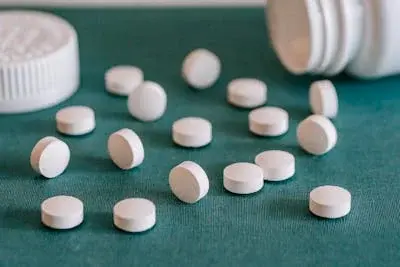Aspirin toxicity in pets

substance:
Acetylsalicylic acid
categories:
symptoms:
Aspirin, a common OTC pain reliever and anti-inflammatory for humans, can be dangerous to pets. Cats are especially sensitive to aspirin due to their slower ability to metabolize it. Even small amounts can be toxic, leading to vomiting, breathing difficulties, or organ damage.
cat
- GI 20-50 mg/kg
- Severe poisoning 50-100 mg/kg
- Can be lethal 100< mg/kg
dog
- GI 30-100 mg/kg
- Severe poisoning 100-500 mg/kg
- Can be lethal 500< mg/kg